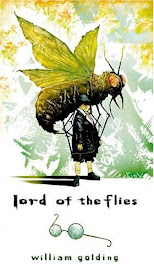1. "If you want to mar a nature, you have merely to reform it." (page 79)
- This is exactly what Lord Henry is doing to Dorian - reforming his nature in order to mar his soul. He was satisfied by the pleasure he gained from convincing Dorian to walk the Henry's way. No wonder why Lord Henry thinks that "there was something terribly enthralling in the exercise of influence. No other activity was like it. To project one's soul into some gracious form, and let it tarry there for a moment [...] there was a real joy in that." (39). Henry wants to destroy Dorian's fine nature in search of the internal beauty in life because he thinks that "to know their properties one had to sicken of them" (61). Therefore, Lord Henry is Frankenstein in another form. In this case, he reformed and created a beautiful creature, Dorian Gray; but, in the end, the science project he made destroyed both of them.
- Sitting on the top of the hierarchy of society, Lord Henry pretentiously thinks that the poor have nothing but self-denial. The philosophy of Social Darwinism influenced him thoroughly, thus he believes that there is privilege of being rich. For the aristocracy, sins are beautiful things, like a beauty mark on one's cheek. Having sins makes rich people like Lord Henry even more supreme and aloof - it shows that these rich people have the capital and ability to do wrong things - they are not infallible; but if they fall, they will still be above others. It is like nowadays rich people gamble in Las Vagas not only for excitement, but also for showing off their immense wealth. At that time, being a scoundrel or a playboy is a way of showing one's nobility and fortune.
1. espial - [n.] the act of detecting something; catching sight of something
Ex. "Then Wisdom altered its method and spoke of espial and discovery." (65)
2. scoundrel - [n.] an unprincipled, dishonorable person; villain
Ex. "My father was a scoundrel, then!" (75)















0 comments:
Post a Comment